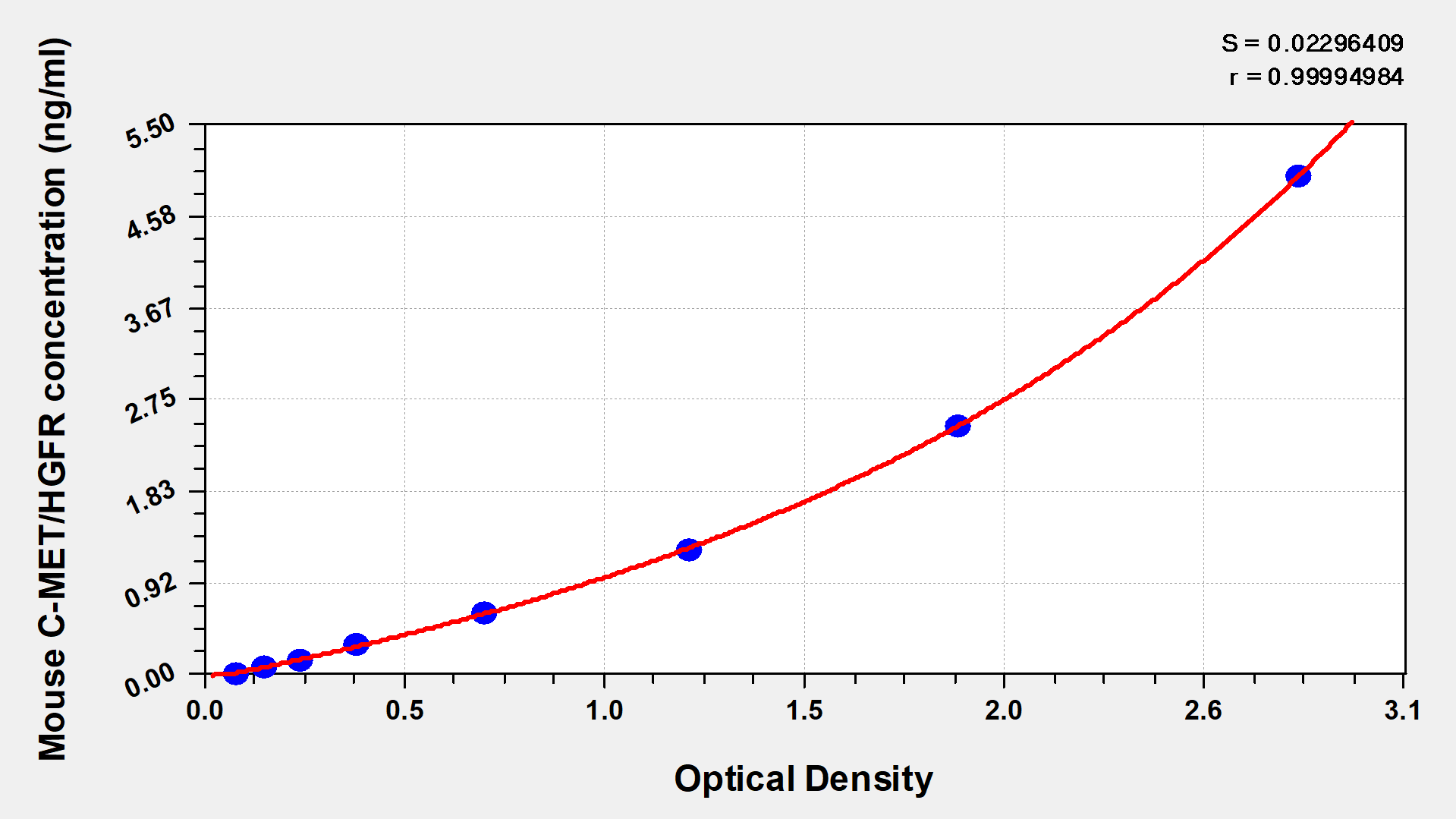The met proto-oncogene encodes the hepatocyte growth factor receptor (HGFR), also known as C-MET, a receptor tyrosine kinase that regulates cellular proliferation, survival, motility, and morphogenesis. When hepatocyte growth factor binds to MET, the receptor dimerizes and undergoes autophosphorylation. This activates downstream signaling cascades including PI3K/AKT and MAPK pathways. The receptor is essential for embryonic development, tissue regeneration, and wound healing. Its dysregulation contributes to various pathological conditions including cancer metastasis and tumor progression.
The Mouse Hepatocyte Growth Factor Receptor ELISA Kit (CSB-E13492m) provides quantitative measurement of MET in Mus musculus samples using a sandwich assay principle. This kit works with serum, plasma, and tissue homogenates. The detection range spans 0.078 ng/mL to 5 ng/mL with sensitivity of 0.02 ng/mL. The assay requires 50-100 μL sample volume and can be completed within 1-5 hours, with detection performed at 450 nm wavelength.
Application Examples
Note: The following application examples are drawn from a selection of publications citing this product. For additional applications, please refer to the full list of references in the "Citations" section.
This ELISA kit has been used in research examining hepatocyte growth factor receptor expression in various biological contexts. Studies have applied the kit to quantify receptor levels in tissue homogenates and serum samples, supporting research into mesenchymal-epithelial transition processes and related cellular signaling pathways.
• Tumor biology research: Quantification of hepatocyte growth factor receptor in primary tumor tissue homogenates to measure mesenchymal-epithelial transition factor expression
• Serum biomarker analysis: Measurement of circulating hepatocyte growth factor receptor levels in serum samples using sandwich immunoassay methodology
• Multi-target profiling: Integration with other biomarker measurements to provide comprehensive molecular characterization in research studies

 These standard curves are provided for demonstration only. A standard curve should be generated for each set of samples assayed.
These standard curves are provided for demonstration only. A standard curve should be generated for each set of samples assayed. 



